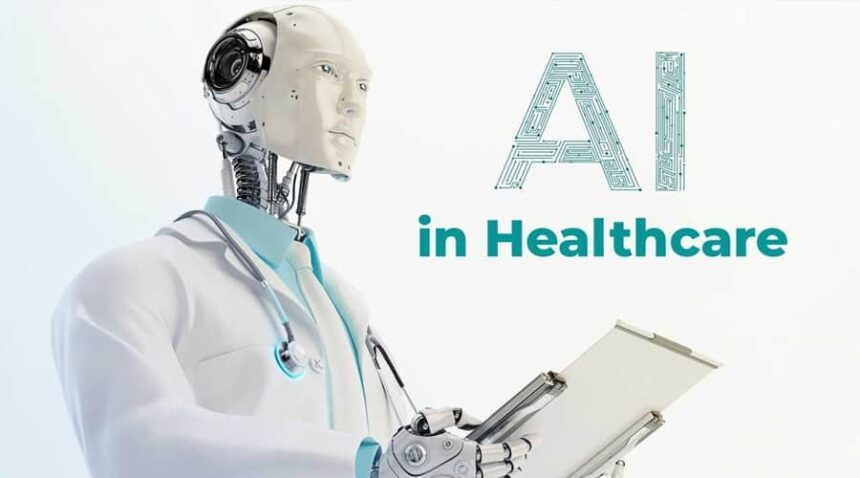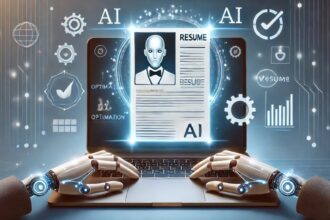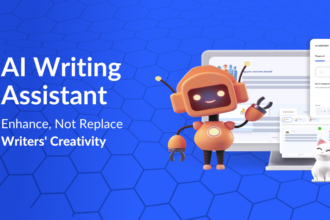AI in Healthcare: How Nigerian Startups are Saving Lives with Automation
Introduction
I was born and raised in Lagos, a city that moves at the speed of light—traffic, ferries, markets, new ideas. When I talk to doctors, nurses, and young developers here, I hear a common refrain: we are at the edge of something big. Not just big in tech circles, but big for patients whose lives depend on quick, accurate care. This is the story of how Nigerian startups are using AI and automation to save lives, one small breakthrough at a time.
- AI in Healthcare: How Nigerian Startups are Saving Lives with Automation
- Introduction
- What is Artificial Intelligence and how is it impacting the healthcare industry?
- A Crowded Hospital, a Quiet Genius
- From Data to Decisions
- The Human Touch in a Digital World
- The Science Behind the Stories
- The Road to Scale
- The Ripple Effect
- A Look to the Future
- A Closing Thought
What is Artificial Intelligence and how is it impacting the healthcare industry?
Artificial intelligence is the use of specific algorithms to train computers for completing specific tasks by processing a large amount of data and by recognizing specific patterns in the data.
These algorithms make it possible for the machined to learn from experience, compute the input data and process it and perform tasks in an almost human-like manner.
David B. Agus, MD, a professor of medicine and engineering at the University of Southern California Keck School of Medicine and Viterbi School of Engineering, believes in the far-reaching impact that AI-powered algorithms would have the healthcare sector. “We have lots of data that we’ve been collecting over decades,” he says. “For the first time, computing power allows us to use the data in a way to benefit patients.”
(source: Artificial-intelligence-healthcare-ultimate-guide-mohamed-kahna)
A Crowded Hospital, a Quiet Genius
On a humid Tuesday morning, I visited a teaching hospital in Lagos. The ward was crowded, the air thick with the sound of beeping machines and murmured conversations in many languages. In the corner, a resident named Adaora was showing a new software on a tablet. It wasn’t flashy in the way sci-fi movies promise; it was calm, practical, and precise.
Adaora works in radiology, a field where seconds matter. A patient arrives with a chest X-ray, and the doctor needs to decide whether the image shows pneumonia, edema, or something more dangerous like a pulmonary embolism. The hospital’s old systems could tell you what a normal X-ray looks like, but not always what’s abnormal in a busy shift. That’s where the new AI tool steps in. It analyzes the image, flags suspicious regions, and highlights patterns that might be easy to miss when you’re juggling several patients at once.
The benefits aren’t just about speed. They’re about consistency. In a country with a mix of public and private facilities, AI helps ensure that a radiologist’s eye is supported by data-driven cues, reducing the chance of oversight during long shifts.
From Data to Decisions
Nigeria’s health landscape comes with data challenges. Records are scattered, and rural clinics often run on paper. But several Nigerian startups are turning that challenge into an advantage. They collect data, clean it, and feed it into AI models that predict disease outbreaks, optimize resource allocation, and guide treatment decisions.
One such startup, based in Jos, built an AI dashboard that tracks patient flow in emergency rooms. The system analyzes admission rates, bed occupancy, and staff availability to propose where to divert patients or allocate oxygen supplies during surges. It’s not about replacing doctors; it’s about giving them better information so they can act quickly and calmly.
In another city, a team is working on predicting neonatal risk. By combining electronic medical records, basic lab results, and maternal health data, their model identifies babies at higher risk of complications. Nurses receive alerts, and doctors can intervene earlier, improving survival rates for newborns who might otherwise slip through the cracks.
The Human Touch in a Digital World
Automation and AI can feel cold, but the people I spoke with never treated it as a replacement for human care. Instead, they see AI as a trusted assistant that handles repetitive tasks and sifts through mountains of data so clinicians can focus on patients.
Take the example of a nurse named Ifeoma who uses a chatbot to triage patients with fever and respiratory symptoms. The bot asks a few questions, records vital signs, and suggests the possible conditions that require urgent attention. Ifeoma then prioritizes patients for examination. The goal is not to replace nursing judgment but to accelerate triage and ensure that those in most need are seen first.
In rural clinics, automation helps with supply chains—tracking vaccine stocks, scheduling follow-ups, and reminding caregivers about immunizations. When vaccines are scarce, knowing exactly how many are left and where to send them makes a life-saving difference.
The Science Behind the Stories
Behind every successful startup story is real science and careful testing. Nigerian teams partner with universities, hospitals, and international collaborators to validate AI models. They run pilot studies, compare AI recommendations with human diagnoses, and iterate quickly.
One group focused on malaria detection used AI to analyze blood samples with smartphone adapters. The prototype could flag infected cells in minutes, bringing rapid diagnosis to communities that previously lacked access to laboratory infrastructure. In another project, AI helps dermatologists distinguish between benign rashes and skin cancers, using images captured with common smartphone cameras. These efforts are not about gimmicks; they’re about building robust, ethical tools that respect patient privacy and consent.
The Road to Scale
A city like Lagos can be both a testbed and a launchpad. The startups that succeed here often lean on partnerships with pharmaceutical companies, telecom providers, and government programs. They design tools that work in low-bandwidth environments, use offline data storage, and provide multilingual interfaces so clinicians across different regions can use them comfortably.
Scaling, of course, comes with questions. How do you ensure data privacy in a country where data protection laws are evolving? How do you train thousands of health workers to use new systems? And how do you maintain affordability when technology costs rise?
Answers seem to lie in three pillars: local relevance, sustainable funding, and strong governance. Local relevance means building tools that fit Nigeria’s languages, disease profiles, and hospital workflows. Sustainable funding means blended models—subsidies for public facilities, tiered pricing for private clinics, and partnerships that spread risk and reward. Strong governance means transparent data practices, clear consent protocols, and independent audits to build trust with patients and clinicians alike.
The Ripple Effect
The impact of AI in Nigerian healthcare goes beyond patient outcomes. It’s about creating a generation of clinicians who work with technology as a partner, not as a distant fancy. Medical students and residents learn to interpret AI outputs, ask the right questions, and integrate automated insights with bedside care.
There’s also the economic ripple. Startups attract talent, labs collaborate with universities, and new service models emerge. Communities that once faced long wait times or travel to distant cities can access better care closer to home. When mothers bring newborns for checkups and receive timely reminders from digital systems, trust in the health system grows.
A Look to the Future
If you walk the streets of any Nigerian city, you’ll hear conversations about AI in healthcare in a way that feels hopeful rather than speculative. The next wave will likely focus on regulatory clarity, interoperability between different health information systems, and more patient-centered AI tools that respect cultural contexts and language diversity.
Some themes you might notice:
- More Robust Data Pipelines: Better data quality will drive more accurate AI models.
- Local AI Talent: Universities and incubators will produce more healthcare AI specialists who understand Nigeria’s unique needs.
- Public-Private Collaboration: Government programs paired with private tech innovations will scale solutions to millions of patients.
Dont miss: Top Nigerian AI Tools Streamlining Business Processes in 2025
A Closing Thought
Stories like Adaora’s radiology aid, Ifeoma’s triage bot, and the neonatal risk project aren’t isolated anecdotes. They’re threads in a larger tapestry of Nigerian resilience and ingenuity. When technology is designed with care for patients and communities, it becomes not a threat to the clinician’s role but a powerful ally.
If you’re reading this and you’re a clinician, a student, an entrepreneur, or a policymaker, remember this: every small improvement in automation, every well-tested AI model, and every well-implemented data protocol can save lives. The work is hard, but the potential is vast. In Nigeria, we are building a future where intelligent systems support compassionate care, and where life-saving access to reliable healthcare is closer to every door than ever before.
Image source: Linkedin.com






